How to pick the best CRM software for your business?
Discover the keys to selecting the perfect CRM software for your business needs. Avoid common pitfalls and find the best-fit solution with our comprehensive guide on choosing the right CRM for optimal growth and efficiency.

Integrating CRM software into your business operations can be a significant strategic move. However, failing to choose the right one can complicate and frustrate your job. As you embark on the search for a CRM that can shoulder the responsibility, you encounter numerous software choices, further adding to the confusion.
In this blog, we aim to provide you with a simple and straightforward process to help you select a CRM that not only performs its job effectively but also contributes to your business's success. Let's dive into this process to empower you to make an informed decision for your business.
Why do you need a CRM in the first place?
A CRM software is an obvious need when you are growing your customer base and your business. A centralised, well-organised and accessible system is essential for effective customer management. If you fail to do that, scaling or even managing your business can turn into a nightmare. Your team, in spite of appearing busy, may not accomplish any activities effectively.
Things you need to look for in CRM software
When exploring CRM software options, it is essential to focus on key considerations for selection.
- Scalability: Ensure the CRM can grow with your business needs.
- Compatibility: The CRM software that you pick must be compatible with your industry. For example, if you are searching CRM for real estate, you need to consider software with real estate sales-specific features.
- Customisation options: Look for flexibility to tailor the CRM to your specific requirements.
- Integration capabilities: Check if the CRM seamlessly integrates with existing tools for smooth operations. For example, if you run Facebook ads, your CRM must be able to auto capture leads from Facebook.
- User-friendliness: Prioritise a user-friendly interface for easy adoption and efficient use.
- Cost and ROI analysis: Evaluate the overall cost against the anticipated return on investment to make an informed financial decision.
Types of CRM software cater to specific jobs
When considering CRM solutions, it is vital to understand different types of CRM tailored to specific needs:
- Operational CRM: Utilise when focusing on day-to-day processes like sales, marketing, and customer service. Now most operational CRM use AI to serve customers and make it extremely easy for businesses to provide customer support. An operational CRM improves the efficiency of business processes and saves valuable hours for your company.
- Analytical CRM: Opt for when you need in-depth data analysis for strategic decision-making. If reporting and customer behaviour analysis is your priority, you should look for CRM with in-depth reporting dashboards. Reports produced by such CRM help businesses make key decisions about their sales and marketing strategies.
- Collaborative CRM: Deploy when enhancing communication and collaboration with customers is a priority. If 2 or more departments are involved, they must have clear and prompt communication. A collaborative CRM enables us to do that effectively.
It is essential to evaluate your business requirements before selecting a CRM type that aligns best with your operational and strategic needs.
Analyse the suitability of CRM software
There are many CRM software available. However, it is upon you to choose the right CRM software for your business. Below are some straightforward steps you can take to evaluate the suitability of the CRM for your business.
- Know if the software meets your requirements.
- Know if the CRM software caters to your industry.
- Find out case studies that prove the software is the right fit for companies like yours.
- Check out online review platforms like capterra.com to find out its online reputation.
- Analyse the limitations of the software so that you can be sure of what to expect from the provider.
- Check the available options for demo, onboarding and training.
- Talk to other existing users to know their first-hand experience with the software.
- Know if your software is future-proof. If your CRM can not handle the next possible requirements, changing software can be a daunting task for businesses like yours.
- Know if your CRM software integrates with your existing tools or software.
When you go through these steps, you will have a clear perspective on which software can serve your needs well and help your business grow.
Make a decision
As the journey to find the perfect CRM for your business advances, the decision-making phase becomes pivotal. This section acts as your guide, outlining the steps to make a well-informed and strategic choice.
Creating a shortlist based on business needs
Tailor your selection by crafting a shortlist that directly aligns with your business needs. Revisit the objectives defined earlier in the process and ensure the CRM options under consideration meet these criteria. Take into account scalability, customisation options, integration capabilities, and user-friendliness to refine your shortlist.
The decision-making process
Establish a clear decision-making framework to streamline the process. Identify key stakeholders and involve them in evaluating and choosing the CRM. Consider factors such as budget constraints, scalability, and long-term business goals during the decision-making journey.
The implementation process
Once you have purchased the CRM, you can develop a detailed implementation plan that outlines the entire process. Identify key milestones, allocate resources, and establish a timeline for the rollout. Consider potential challenges and devise contingency plans to ensure a proactive approach to problem-solving.
Ensuring smooth integration with existing systems
Conduct a thorough analysis of your current systems and processes to identify potential integration points. Collaborate with the IT team and CRM vendor to ensure a seamless integration process. Perform thorough testing to identify and address any compatibility issues before full-scale implementation.
By meticulously planning the implementation, investing in team training, and ensuring harmonious integration with existing systems, you set the stage for a successful CRM deployment. This proactive approach minimises disruptions and maximises the benefits of your chosen CRM solution.
As your CRM system becomes an integral part of your business operations, maintaining its effectiveness over time is paramount. Let’s delve into the ongoing care and future considerations required for a thriving CRM implementation.
Training your team
Prioritise comprehensive training sessions for your team to ensure they are well-versed with the new CRM. Tailor training programs based on user roles to maximise efficiency. Foster a culture of continuous learning to encourage team members to leverage the CRM's full potential.
Importance of regular updates
Regular updates ensure that your system is equipped with the latest features, security patches, and performance enhancements.
Evaluating the need for upgrades
Review your business processes regularly to identify the need for system upgrades. Consider factors such as changes in business requirements, technological advancements, legal compliances, and the introduction of new features by the CRM provider.
Future-proofing your CRM investment
Explore strategies for future-proofing the CRM investment to ensure its longevity. Discuss considerations such as scalability, flexibility, and the CRM's ability to adapt to emerging technologies. Encourage businesses to choose a CRM solution that grows with their evolving needs, minimising the need for frequent overhauls.
Common pitfalls to avoid while picking up the right crm for your business
Choosing the right CRM (Customer Relationship Management) system for your business can be crucial for success, but there are common pitfalls that you should avoid. Here are some potential issues to watch out for:
- Overlooking business needs: Ensure that the CRM aligns with your specific business requirements. Avoid selecting a system with excessive features that you won't use, or one that lacks essential functionalities crucial for your operations.
- Ignoring scalability: Consider your business's future growth. Select a CRM that can scale alongside your company, accommodating increased data, users, and transactions without major disruptions.
- Neglecting user adoption: Choose a CRM that is user-friendly and easily adopted by your team. Resistance to change or difficulty in using the CRM can hinder its effectiveness.
- Insufficient integration: Ensure that the CRM can seamlessly integrate with your existing software and tools. Inadequate integration can lead to data silos and inefficiencies.
- Overlooking mobile access: In today's dynamic business environment, access to CRM data on mobile devices is crucial. Ensure that the CRM offers a user-friendly mobile interface to support on-the-go productivity.
- Ignoring data security: Safeguarding customer data is paramount. Choose a CRM that prioritises robust security measures to protect sensitive information from potential breaches.
- Underestimating customisation needs: Every business is unique, and your CRM should be customisable to fit your specific processes. Avoid platforms that limit your ability to tailor the system to your requirements.
- Failing to consider costs: Beyond the initial purchase cost, factor in ongoing expenses such as maintenance, support, and potential upgrades. Ensure that the CRM aligns with your budget and provides a clear return on investment.
By steering clear of these common pitfalls, you can increase the likelihood of selecting a CRM that not only suits your current needs but also supports the growth and efficiency of your business in the long run.
Conclusion
Choosing the right CRM software is a pivotal decision for the growth and efficiency of your business. As we have explored, it is crucial to align the CRM with your specific needs, ensuring scalability, ease of use, and robust integration.
By avoiding common pitfalls and adhering to these key principles, you will unlock the perfect CRM solution. Remember, customization is key, and user adoption is paramount for sustained success.




